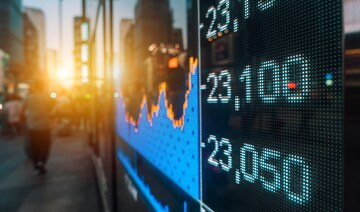BEIRUT: Lebanese banks will remain closed in light of nationwide protests for the fifth consecutive day, the Association of Banks in Lebanon announced.
However, Banque du Liban, the country’s central bank, on Tuesday provided banks with money from their deposits in order to meet citizens’ needs.
Meanwhile, Education Minister Akram Chehayeb ordered all schools and universities to resume classes on Wednesday “in order to preserve the interests of students and to preserve the academic year.”
Prime Minister Saad Hariri met with the International Support Group (ISG) for Lebanon, which includes envoys from the US, Russia, France, Britain, Germany, Italy, the EU, China and the Arab League, as well as the UN special coordinator for Lebanon, Jan Kubis.
The ISG urged Lebanese authorities to address people’s complaints, demanding “structural reforms and responsible and acceptable social changes that truly curb corruption and waste, away from sectarianism.”
Such changes, it said, should “ensure proper governance and full accountability, and lead to sustainable and stable growth.”
Kubis said Hariri “committed that the government and its legitimate security forces will continue to protect civilians who are demonstrating peacefully, and will take appropriate measures against any possible violent incitement, to protect public and private property and institutions, and the people’s right to peacefully express their views.”
On behalf of the ISG, Kubis urged “officials and political actors in Lebanon to listen to the legitimate demands of the people, work with them on solutions, apply them, and refrain from any statements and acts that could inflame tensions and incite confrontation and violence.”
After meeting Hariri, Kuwait’s ambassador to Lebanon, Abdel Aal Al-Kinai, said: “Now is not the time to speak but to act.”
The CEDRE Conference follow-up committee will convene in Paris on Nov. 15 to launch the implementation of development projects worth $11 billion to help Lebanon overcome its economic and financial crisis.






















